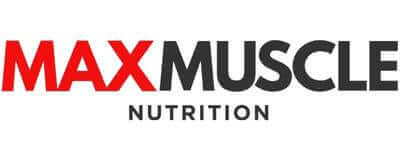Mastering Athletic Nutrition: A Detailed Guide to Pre-, During, and Post-Competition Meals 🌟💪🥦
Hello, fitness warriors! Your go-to fitness coach Mike Pringle is back, and today, we're diving deep into the nitty-gritty of athletic nutrition. Whether you're gearing up for a marathon or a high-intensity workout, understanding the specifics of what to consume can make all the difference. So, lace up, and let's break it down!
-
Pre-Competition Nutrition
- The primary purpose of the pre-competition meal is to maintain hydration, maximize blood glucose and stored glycogen levels, and satisfy hunger.
- When the meal is closer to the start of the game, smaller amounts of food should be consumed. For instance, if it's within an hour or 30 minutes, the meal should be small and highly digestible. If it's three or four hours out, a more regular-sized meal can be consumed.
- High fat, high fiber foods, and sugar alcohols should be avoided as they can slow down digestion and cause gastrointestinal issues.
- For endurance athletes, the recommendation is:
- 1 hour before competition: 0.5 grams of carbohydrate per kilogram of body weight. For a 68 kg (approximately 150 lbs) individual, this equates to about 34 grams of carbohydrate, similar to a small banana and eight ounces of a sports drink.
- 2 hours before competition: Increase the amount of carbohydrate. This could be a boiled potato, bagels, jam, and a sports drink.
- 4 hours or more before competition: A meal that might include a bowl of cereal with fruit and milk or an egg white sandwich on two pieces of white bread.
-
During Event Nutrition:
- Proper hydration is essential. Athletes should hydrate several hours before exercise to allow for fluid absorption and urine output.
- The optimal sports drink contains 20-30 milli-equivalents of sodium, 2-5 milli-equivalents of potassium, and a 5-10% carbohydrate concentration.
- For children, the American Academy of Pediatrics recommends:
- Children weighing 88 pounds or less should drink about 5 ounces of cold water or a flavored salted beverage every 20 minutes during practice.
- Adolescents weighing 132 pounds should drink up to 9 ounces every 20 minutes.
-
Post-Competition Nutrition:
- After an aerobic endurance event, it's crucial to replenish carbohydrate stores and consume enough protein to build and repair muscle.
- Glycogen synthesis occurs rapidly when large amounts of carbohydrates (1 to 1.85 grams per kilogram of body weight per hour) are consumed immediately after exercise and at regular intervals every 15 to 60 minutes for up to five hours.
- For strength and power sports, athletes should focus on higher glycemic carbohydrates immediately post-exercise, especially if they must compete or train again within the next 24 hours.
In Conclusion 🌟
Athletic nutrition isn't just about eating; it's about eating right and in the right amounts. By understanding and implementing these detailed guidelines, you're setting yourself up for success, whether you're a seasoned athlete or just starting on your fitness journey.
Stay fueled, stay fabulous, and remember, every meal and every sip takes you one step closer to your peak performance. Keep pushing those limits, and I'll be right here cheering you on!
Your Friends at Max Muscle Sports Nutrition - Stone Mountain
Disclaimer:
Hey there, fitness enthusiasts and fellow athletes! 🏈 While I'm proud to share my insights and experiences from a combined 15 years in the National Football League (NFL) and Canadian Football League (CFL), and while I am a certified sports fitness and nutrition coach, it's essential to note that I'm not a registered dietitian. The information provided in this blog is based on my personal experiences, knowledge, and training. Everyone's body and needs are unique, so always consult with a healthcare professional or registered dietitian before making significant changes to your diet or fitness routine. Stay safe, stay informed, and let's keep pushing those boundaries together! 💪🏼🥗🏋🏽♂️
Mike Pringle

